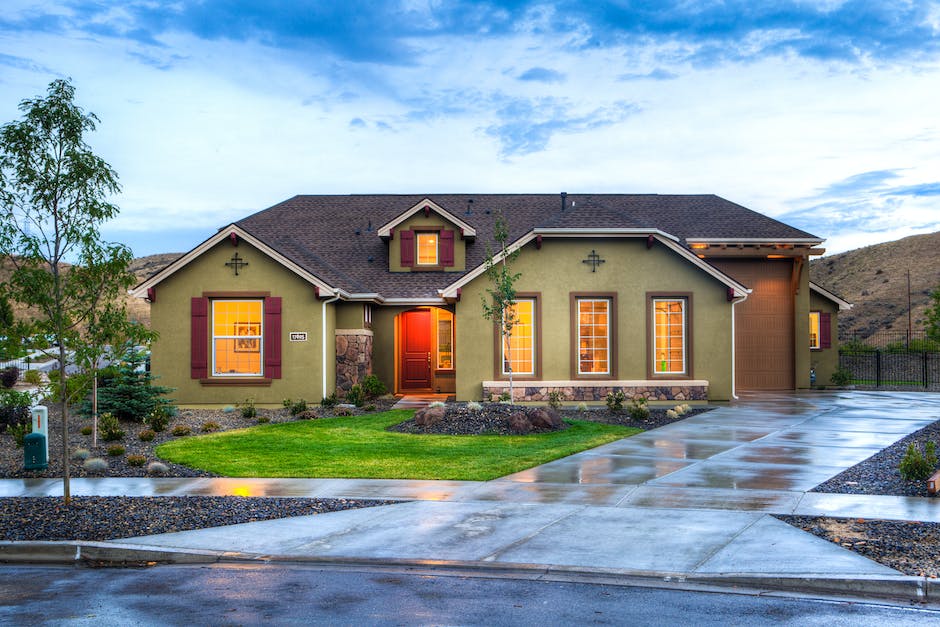Bespoke Commercial Real Estate Software Software
What is Commercial Property Management Software?
Commercial property management software is a specialized type of software designed to help businesses manage their commercial properties efficiently. It can be customized to meet the specific needs of the business or organization, whether they own or lease commercial properties. This software can handle various tasks, including tenant management, rent tracking, maintenance, financial reporting, lease administration, and overall property management.Contact us if you are wanting to have a bespoke Commercial Real Estate Software application developed?
One major benefit of using commercial property management software is that it can save time and streamline operations. Rather than handling these tasks by hand, which can be time-consuming and prone to errors, a comprehensive software solution can automate and optimize the management of commercial properties. This can help businesses track income and expenses, monitor maintenance requests, generate reports on property performance and occupancy rates, and keep track of lease and contract details.
Another benefit is that the software can offer critical insights into the performance of a business's properties, enabling informed decision-making. For example, property owners can use the software to analyze market trends and occupancy rates, helping them to determine rental rates and other financial decisions. The software can also integrate with accounting and financial software, making it easier to manage revenue and expenses.
Overall, custom commercial property management software can help businesses improve their bottom lines, enhance tenant relationships, and streamline their property management processes. By reducing errors and providing real-time data, businesses can make better-informed decisions and achieve more growth over time.

What are the main functions of Commercial Property Management Software?
Commercial property management software typically consists of several modules that provide various functionalities to business owners. These modules include property management, financial management, lease management, tenant management, maintenance management and reporting.The property management module allows property owners to manage properties and their associated data, such as location, size, occupancy status and lease agreements.
The financial management module facilitates the financial operations of the property, including rent collection, invoicing, and expense tracking. It also generates financial reports such as balance sheets and profit and loss statements.
The lease management module enables property owners to manage lease agreements, from tracking renewal dates to generating renewal offers and tracking rental payments.
The tenant management module provides a centralized location to manage the tenants of commercial properties. It enables property owners to track tenant history and maintain records of interactions with tenants.
The maintenance management module helps property owners track maintenance requests, schedule maintenance tasks and ensure that necessary repairs are completed in a timely manner.
Finally, a reporting module provides customized reports to help property owners make informed decisions about property management. Reports can include occupancy rates, financial performance, and maintenance requests.
Overall, commercial property management software provides an array of tools to help property owners streamline business operations, increase productivity and maintain control over their properties.
Data / systems integration
Commercial property management software is often integrated with various existing systems to ensure effective and efficient management of commercial properties. Some of the systems that commercial property management software is integrated with includes accounting systems, database management systems, lease management systems, and customer relationship management systems.To integrate these systems, APIs or other tools are often used. APIs provide a secure and standardized way for different systems to communicate with each other. When integrating with APIs, some of the considerations that should be made include data security, compatibility between systems, and data synchronization. It is also important to choose APIs that offer sufficient documentation and technical support.
Another tool that can be used to integrate systems is middleware. Middleware acts as a bridge between different systems, allowing them to communicate with each other. When using middleware, it is important to ensure that it supports the necessary protocols and offers adequate data security.
In conclusion, integrating commercial property management software with existing systems is critical to successful management of commercial properties. APIs and middleware are some of the tools that can be used to achieve integration, and considerations such as data security and compatibility between systems should be kept in mind.
Who uses Commercial Property Management Software?
Various organizations across different verticals use commercial property management software, commercial property software, commercial real estate software, and CRE (Commercial Real Estate) asset management software. These types of software are particularly beneficial for organizations that own or lease multiple commercial properties, such as property management companies, real estate firms, REITs (Real Estate Investment Trusts), facilities management companies, and corporations with large real estate portfolios. The size of the organization can range from small businesses and start-ups to large enterprises. Ultimately, any organization looking to manage their commercial properties more efficiently can benefit from custom software solutions tailored to their needs.
Benefits of Commercial Property Management Software
Organisations use commercial property management software for various reasons, including streamlining day-to-day operations, improving tenant satisfaction and retention, optimizing portfolio management, and maximizing profitability. By implementing a custom commercial property management software, business owners can gain a competitive edge in the industry.One of the key benefits of commercial property management software is increased efficiency. Automated workflows and centralized data allow property managers to complete tasks faster and with greater accuracy, reducing errors and saving time. Additionally, software can assist in task scheduling, lease management, rent collection, and maintenance requests, making it easier for managers to keep track of tasks and avoid potential problems.
Another significant advantage is improved tenant satisfaction and retention. Software can help property managers stay connected with tenants by enabling them to communicate with them easily and quickly. Tenants can lodge maintenance requests, view payment histories, and sign new leases from their smartphones, tablets, or laptops, giving them greater convenience and flexibility.
In addition, commercial property management software can provide insights into portfolio performance. Managers can generate real-time reports and dashboards that show occupancy rates, rental income, maintenance statistics, and expenses, making it easier to identify areas for improvement and optimize portfolio management.
Finally, commercial property management software can also lead to increased profitability. By automating workflows, managers can reduce administrative costs, improve tenant satisfaction, and increase portfolio performance. This can lead to higher revenues and a better bottom line.
In summary, the implementation of customized commercial property management software can provide organizations with increased efficiency, improved tenant satisfaction, better portfolio insights, and higher profitability, making it an essential tool for business owners in the commercial real estate industry.
Some of the players in the Commercial Property Management Software market
1. Yardi Voyager - Yardi is known for being one of the most comprehensive commercial property management software systems available, offering a wide range of functionalities including lease management, accounting, and maintenance. However, some customers have reported that the system can be difficult to navigate and that customer support can be slow to respond.2. MRI Software - MRI Software is another popular commercial property management software offering that is known for its robust lease management functionalities. However, some customers have reported limitations in the system's ability to handle complex financial reporting and have complained about the company's pricing structure.
3. RealPage - RealPage is a cloud-based commercial property management software system that offers a wide range of functionalities including accounting, maintenance, and marketing. Customers have reported that the system is easy to use and that the support team is responsive. However, some customers have noted that the system can be slow and that some functionalities are limited.
4. AppFolio Property Manager - AppFolio is a cloud-based commercial property management software system that offers features like accounting, maintenance, and marketing. The system is known for being user-friendly and offering excellent customer support. However, some customers have reported limitations in the system's ability to handle complex lease management needs.
5. CoStar Real Estate Manager - CoStar is a commercial real estate software offering that is known for its asset management functionalities. Customers have reported that the system is user-friendly and offers excellent reporting capabilities. However, some customers have noted that the system can be expensive and that customer support can be slow to respond.
Overall, customers should consider their specific needs and requirements when selecting a commercial property management software system. Each system has its strengths and weaknesses, and researching each option thoroughly can help ensure that businesses select the best fit for their needs.
Benefits of off-the-shelf Commercial Property Management Software
Off-the-shelf commercial property management software offers several benefits for business owners. Firstly, it is a cost-effective solution as the software is pre-built and has already been tested, so there are no additional setup costs or time required for development. Secondly, it is easy to use and requires minimal customization, which saves time and minimizes the risk of errors. Thirdly, off-the-shelf solutions are designed to support a variety of commercial real estate business needs and can be easily integrated with other software applications. Additionally, support and maintenance for these software packages are often readily available from the vendor, reducing the need for in-house support. Finally, as off-the-shelf software is widely used in the industry, it provides a level of standardization that can facilitate the exchange of data between different parties in a commercial real estate transaction.Limitations of off-the-shelf Commercial Property Management Software
Off-the-shelf commercial property management software can be a great option for some businesses. However, there are limitations to these pre-built solutions that can make them unsuitable for some companies. Here are some examples of these limitations:1. Limited customization: Pre-built property management software is designed to fit the needs of a wide range of businesses. As a result, it may not meet the specific needs of your business. While some customization is often possible, pre-built software may not be flexible enough to accommodate all of your requirements.
2. Lack of scalability: As your business grows, you may find that your software needs to be able to handle more data, users, and properties. Off-the-shelf software may not be scalable enough to accommodate your growth, which means you may need to switch to a different solution down the line.
3. Incompatibility with other systems: If you use other software systems in your business, such as accounting software, you may find that pre-built property management software does not integrate well with these systems. This can create inefficiencies and extra work for your team as they try to reconcile data between systems.
4. Limited support: When you purchase pre-built software, you are relying on the vendor to provide support for any issues that may arise. While some vendors provide excellent support, others may not be as responsive or helpful. This lack of support can be frustrating and can lead to downtime for your business.
5. Security concerns: Off-the-shelf software may not be as secure as custom-built solutions. While vendors often provide some level of security features, these may not be sufficient to protect your sensitive data from cyber threats.
In summary, while pre-built property management software can be a good choice for some businesses, it is important to consider the limitations of these solutions before making a decision. A custom-built solution may be a better fit for businesses that require more flexibility, scalability, and security.
Is bespoke Commercial Property Management Software a viable option?
Bespoke or partially bespoke commercial property management software comes with various benefits that can make a significant impact on business operations. Firstly, it offers a tailored solution that is designed specifically for the business's unique needs and preferences. This means that the software can be customized to fit the workflow, processes, and environment of the business, helping to streamline operations and boost efficiency.Another advantage of bespoke software is that it can be more cost-effective than off-the-shelf solutions in the long run. While customized software may require a higher upfront investment, it has the potential to deliver greater ROI over time, especially as the business grows and evolves. Custom software can also provide a competitive edge by giving businesses unique capabilities that are not found in off-the-shelf products.
Successful cases of bespoke commercial property management software include the implementation of lease management and accounting systems for property management firms. These firms have benefitted from custom solutions that automate their financial and accounting processes, reducing errors and increasing accuracy. Additionally, property management firms have used bespoke software to centralize their data, allowing them to manage their properties in one centralized location, reducing wasted time and inefficiencies.
Another example includes the use of bespoke software by facilities management companies, which has helped them streamline their maintenance and repair processes. Custom software solutions can help automate scheduling, prioritize work orders, give real-time updates to clients, and track progress with ease. By adopting a bespoke software solution, these firms have been able to stay competitive in the market, reduce operational costs, and improve customer experiences.
Overall, bespoke or partially bespoke commercial property management software can provide businesses with a range of benefits from greater customization to lower total cost of ownership. It allows businesses to streamline operations, automate processes, and stand out in the market with unique capabilities. Custom solutions are the wave of the future for businesses looking to remain competitive and to grow and scale their operations.

Fun facts about Commercial Property Management Software
Did you know that the global commercial property management software market is estimated to grow from $12.9 billion in 2020 to $22.04 billion by 2026?Also, studies show that over 80% of commercial real estate professionals believe that technology can positively impact their business operations, particularly in the areas of data management and analysis.
In terms of features, some of the most sought-after functionalities in commercial property management software are lease administration, financial management, and maintenance management.
Interestingly, the use of cloud-based software solutions for commercial property management has been on the rise, with many business owners opting for the convenience and accessibility of cloud-based tools.
Finally, CRE asset management software has been gaining traction, particularly among investors and asset managers, as a way to improve asset performance and maximize returns. This type of software allows for deep analysis and tracking of key performance indicators, such as occupancy rates and rental income.
Commercial Property Management Software FAQ
1. What are the benefits of having a custom commercial property management software?A: Some benefits include tailored functionality that meets your specific needs, streamlined processes, increased efficiency, better data management, and improved decision-making.
2. How long does it take to develop custom commercial property management software?
A: The development timeline can vary based on the complexity of the project, the number of features required, and the development methodology used. It's important to work with your development team to establish a realistic timeline that accommodates your business needs.
3. How do I know which features I need for my commercial property software?
A: Start by analyzing your current processes and identifying areas where you can improve efficiency. Then, work with your development team to discuss functionality that can help address these challenges, along with any features that might be unique to your business.
4. What is the development process like?
A: The development process typically involves several stages, including requirements gathering, design, development, testing, and implementation. Your development team should be able to provide regular progress updates and work collaboratively with you throughout the process.
5. What kind of support and training do you provide after implementation?
A: It's important to work with a development team that provides ongoing support, including bug fixes, updates, and technical assistance. Your team should also offer training to help ensure that your staff can use the software effectively.
6. How much does it cost to develop custom commercial property software?
A: The cost of development can vary based on a number of factors, including the complexity of the project, the number of features required, and the development methodology used. Your development team should provide a detailed estimate based on your specific needs.
7. What if I need to make changes or updates to the software after implementation?
A: Your development team should provide ongoing support and be available to work with you to make changes or updates as needed. It's important to establish a clear process for making changes and to work collaboratively with your development team throughout the project lifecycle.
Next Steps?
If you're a savvy business owner, you know that managing commercial property can be a complex and time-consuming undertaking. And if you're considering a custom software solution to help streamline your operations and grow your bottom line, look no further! Our team of experts in commercial property management software, commercial property software, commercial real estate software, and CRE asset management software have the skills and experience you need to get the job done right. We've helped countless clients like you improve their workflows, increase their ROI, and stay ahead in a competitive marketplace. So why wait? Give us a call today to learn more about how we can help you take your business to the next level with a custom commercial property management software solution.Read more about the main software category Productivity Applications.
Other services in Productivity Applications category:
Want a quick quote for the development of custom Commercial Real Estate Software Application?
Contact us to discuss your questions about bespoke Commercial Real Estate Software Applications.
